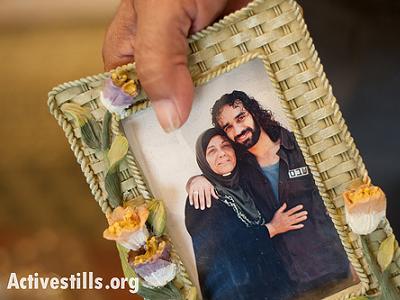
A Palestinian prisoner held by Israel has agreed to end an on-off hunger strike that lasted for more than eight months in exchange for an early release, Palestinian officials say.
The fast by Samer al-Issawi, from a suburb of Jerusalem, had stoked weeks of street protests and concerns by Israel that his death might lead to mass unrest.
Issawi on Monday agreed to a deal brokered by Israeli and Palestinian officials to serve eight months for allegedly violating bail conditions for an earlier release, after which he will be freed to his Jerusalem home, Qadura Fares, head of the Palestinian prisoner organization, told Reuters news agency.
Issawi’s lawyer and sister conveyed the offer just before midnight to his bedside in Israel’s Kaplan hospital, where he had been under Israeli guard and receiving intravenous vitamins but was refusing food.
Israel convicted Issawi of opening fire on an Israeli bus in 2002, but released him in 2011 along with more than 1,000 Palestinian prisoners in exchange for Israeli soldier Gilad Shalit held hostage by the Hamas movement in Gaza.
Conspiracy Charges
Issawi was re-arrested last July after Israel said he violated the terms of his release by crossing from his native East Jerusalem to the occupied West Bank, and ordered the 32-year-old to stay in jail until 2029 – his original sentence.
An Israeli official told Reuters last week that Issawi had crossed into the West Bank as part of “continued involvement in attempting to establish terror cells”.
Monday’s deal dispenses with conspiracy charges and will see Issawi serve eight months for leaving Jerusalem – a decision Palestinian officials say will likely be endorsed by an Israeli military court on Tuesday.
Both Palestinian and Israeli officials have visited Issawi frequently in recent weeks to reach a compromise and pre-empt the violence his death could provoke.
Israel holds about 4,800 Palestinians it accuses of committing or planning violence against it. Palestinian officials say 207 Palestinian security prisoners have died in Israeli jails since 1948.
(Agencies and Al Jazeera – AlJazeera.com)





